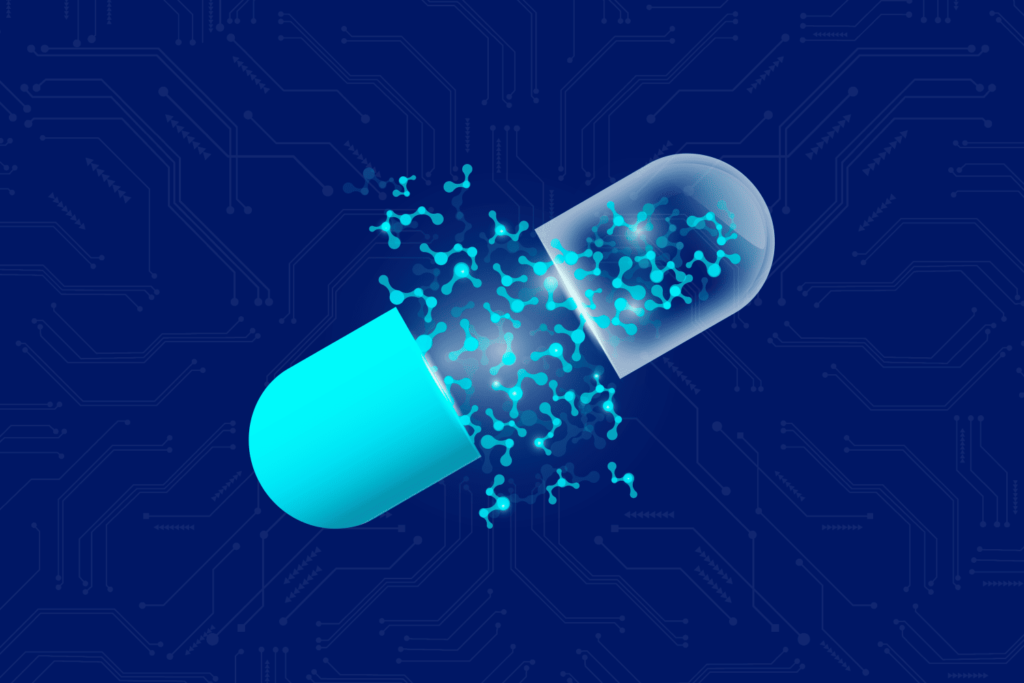Data cleaning in biotech is a critical step in ensuring the accuracy and reliability of research findings and clinical applications. Data collected from various sources such as clinical trials, genomic studies, and patient records can often be incomplete, inaccurate, or inconsistent. These issues can lead to skewed results and hinder the progress of biotech innovations. Biotech data cleaning addresses these challenges by refining raw data, making it suitable for meaningful analysis and decision-making.
Role of Data Cleaning in Biotech
The role of data cleaning in biotechnology is far-reaching, influencing several key areas:
- Ensuring Accurate Research Results: In fields like genomics and drug discovery, clean data is essential for obtaining reliable insights. Any errors or inconsistencies can lead to incorrect conclusions, potentially delaying breakthroughs. For example, when studying genetic variations or protein structures, having consistent, high-quality data allows researchers to make accurate interpretations, accelerating scientific discoveries and ensuring the development of effective treatments.
- Optimizing Machine Learning Models: Machine learning is a powerful tool used in biotech to predict patient responses, identify potential drug candidates, and analyze vast datasets. However, the success of machine learning models depends entirely on the quality of the data fed into them. Clean data ensures that machine learning models are trained on reliable information, which improves their accuracy in predictions. Poor quality data leads to flawed models, which can impact critical decisions in drug development and patient care.
- Facilitating Personalized Medicine: Personalized medicine aims to tailor treatments to individual patients based on their unique genetic makeup, environment, and lifestyle. Clean, well-organized patient data is crucial for creating customized treatment plans. Without proper data cleaning, doctors and researchers might miss key factors that influence treatment success, leading to ineffective therapies and potential harm to patients. Clean data, therefore, is the foundation of precision medicine, allowing for better-targeted therapies and improved patient outcomes.
- Improving Commercial Decision-Making: In addition to its research benefits, clean data plays a vital role in the commercial side of biotech. For example, companies use clean data to track sales performance, identify market trends, and optimize marketing strategies. By eliminating errors such as duplicates or inaccuracies, organizations can make smarter decisions, allocate resources more effectively, and improve their return on investment (ROI). In one case, a biotech company used data cleaning to improve sales compensation, resulting in more accurate tracking and better communication of business strategies.
- Streamlining Operational Efficiency: Biotech data cleaning also helps streamline operational processes within biotech companies. By organizing and maintaining accurate data, teams spend less time correcting errors and more time focusing on innovative research and product development. Whether it’s through integrating clinical data, lab results, or patient feedback, clean data reduces bottlenecks in workflows and ensures smooth, efficient operations.
What is Data Cleaning?
Data cleaning is the process of preparing raw data for analysis by identifying and fixing errors, inconsistencies, and inaccuracies. In biotech, where precision is vital, clean data is essential to making meaningful discoveries and creating effective therapies. Some key steps in the data cleaning process include:
- Handling Missing Data: Missing data is a common problem in any large dataset, and biotech is no exception. Missing data can occur for various reasons, such as experimental failure or incomplete patient records. There are several methods to deal with this, such as imputing missing values (filling in the gaps) or excluding incomplete data points.
- Removing Duplicates: When data is gathered from multiple sources, duplicates may arise. These need to be removed to ensure that the analysis is based on unique, non-repetitive data points.
- Correcting Errors: Errors can occur in data entry, measurement, or categorization. These inaccuracies must be identified and corrected to prevent skewed results, which could lead to incorrect conclusions in scientific research.
In biotech, maintaining data quality is paramount. Clean data helps researchers to trust their findings and ensure that their models, predictions, and innovations are based on solid, reliable information.

Impact of Clean Data on Biotech Research
The importance of clean data in biotech research cannot be overstated. In areas like genomics, proteomics, and drug discovery, even small errors can lead to major setbacks. Clean data has a direct impact on the following areas:
- Genomic and Proteomic Studies: In genomic research, understanding the sequences of DNA or RNA requires clean, accurate data to ensure that conclusions about genetic disorders, gene functions, and mutations are correct. Misleading data could lead to the wrong interpretations, affecting the direction of research.
- Drug Discovery and Development: When developing new drugs, accurate data is essential for predicting how drugs will interact with the human body. Clean data enables researchers to develop predictive models that can more reliably forecast the effects of a drug, speeding up the process and reducing the likelihood of failure during clinical trials.
Case Study: Biotech Company Boosts Data Quality and Commercial Operations with STRATA
A global biotech company focused on providing alternatives to biologic medicines in fields like oncology and ophthalmology sought to improve its data quality and gain better insights into its commercial operations.
The Challenge
The company recently introduced a biosimilar product designed to prevent infections in chemotherapy patients. Its commercial efforts were complicated by the need to manage sales across a diverse and complex set of accounts, including healthcare providers, hospitals, and group purchasing organizations (GPOs). However, the existing data management system could not handle the complexity of these relationships, leading to major issues in data consistency and visibility.
Sales data discrepancies, such as duplicates and inaccuracies, created challenges in tracking sales performance at the individual account and territory levels. This caused confusion in sales compensation and hindered decision-making. The senior director of commercial operations noted, “Our sales data wasn’t lining up, and there were serious data quality issues, making it difficult to gain insights into our sales efforts.”
The company needed a more reliable system to gain a clear view of its sales activities and target the right accounts effectively.
The Solution
In response to these challenges, the company transitioned from its existing data management platform to STRATA, a cloud-based commercial data management solution from Acorn AI, a Medidata company. STRATA allowed the company to streamline its data, offering a clear, accurate view of commercial operations at every level.
“STRATA gives us full visibility into our commercial operations, allowing us to analyze market share, identify target accounts, and better understand our customers,” said the senior director. This solution enabled the company to track product movement more efficiently, providing a deeper understanding of sales performance.
The STRATA platform was configured to reflect the company’s complex customer account structure. The Command Center feature was implemented to give commercial leaders operational control over the data, with tools for diagnostics, user management, and bulk file uploads. The integration with the company’s CRM and third-party logistics system ensured that sales activity, accounts, invoicing, and inventory remained synchronized without the delays that had plagued their previous system.
The Results
The switch to STRATA resulted in a range of improvements:
- Smarter Decision-Making: With access to accurate, real-time data, commercial leaders could make informed decisions about sales strategies and communicate those plans more effectively to stakeholders and sales reps.
- Accurate Sales Compensation: STRATA resolved issues related to account duplication and data inconsistencies, ensuring that sales reps were compensated accurately based on their actual performance. Sales reps were better equipped for customer meetings, armed with precise contract details and sales numbers.
- Increased Efficiency: The data management team, which previously spent a significant amount of time tracking and correcting account data, could now focus on higher-value tasks. STRATA helped eliminate thousands of duplicate accounts, reducing the burden on the data stewardship team and improving overall data quality.
As the company plans to launch additional compounds in the upcoming year, STRATA has provided a reliable platform to support these new commercial initiatives.
“With support from Acorn’s team, STRATA provides a strong foundation for our commercial efforts, ensuring we can execute more efficiently from day one,” said the senior director.
Data Cleaning and Machine Learning
Machine learning (ML) has become a critical tool in modern biotech research, especially in areas like drug discovery, clinical prediction models, and genomic analysis. However, machine learning models can only be as good as the data they are trained on. This is where clean data becomes a key asset.
- Why Clean Data Matters for ML: Machine learning models learn from the data they are trained on. If the data contains errors, the model will likely produce inaccurate or biased results. In biotech, this could mean making incorrect predictions about drug efficacy, patient outcomes, or the behavior of biological systems.
- The Consequences of Data Errors: Small errors in data can lead to large discrepancies in the results produced by machine learning models. For example, if clinical data about patient reactions to a drug is incorrectly recorded, it can lead to the development of ineffective treatments or incorrect medical guidelines.
Real-World Example: Improved Accuracy in Clinical Prediction Models
A notable example of improved precision in clinical prediction models comes from the application of machine learning algorithms. These algorithms are used to forecast patient outcomes more accurately. A prominent case is the PREDICT tool, which estimates the survival rates for women with early-stage breast cancer after they undergo surgery. By integrating clinical and pathological variables and utilizing sophisticated computational methods, the PREDICT tool significantly enhances predictive accuracy compared to traditional models.
Driving Innovations in Personalized Medicine
Personalized medicine has the potential to revolutionize the way healthcare is delivered. By tailoring treatments to individual patients based on their genetic profiles, lifestyle, and environmental factors, personalized medicine can provide more effective therapies with fewer side effects. However, this innovation relies on clean and accurate patient data.
- Role of Clean Data in Personalized Medicine: Clean data allows for better patient stratification based on genetic and clinical data, ensuring that treatments are matched with patients who will benefit the most from them.
- Advanced Diagnostics and Targeted Therapies: Reliable data is key to developing diagnostic tools that can accurately identify diseases and conditions in their early stages. Clean data ensures that these tools work as intended and that the right treatments are delivered at the right time.

Example: Data-Driven Personalized Cancer Therapies
In the field of cancer research, clean data has been instrumental in developing personalized cancer therapies. By analyzing the genomic profiles of patients, researchers can identify mutations that drive cancer and design drugs to target these specific mutations. Clean data is essential in this process, as even small errors in genomic data can lead to the wrong treatment being prescribed, potentially putting patients at risk.
Overcoming Challenges in Data Cleaning
The biotech industry faces several challenges when it comes to data cleaning, including:
- High Volume and Complexity of Data: Biotech research generates vast amounts of data from various sources, including clinical trials, laboratory tests, and IoT devices. This data can be complex and difficult to manage, making the cleaning process time-consuming and prone to errors.
- Integration of Data from Multiple Sources: Data is often collected from multiple sources, such as different hospitals, research centers, and patient devices. Cleaning this data and ensuring consistency across sources is a difficult but necessary task.
- Automated Data Cleaning Tools: To address these challenges, many biotech companies are turning to automated data cleaning tools powered by machine learning and AI. These tools can process large datasets more quickly and accurately, reducing the time spent on manual data cleaning and ensuring the data is ready for analysis.
Future of Data Cleaning in Biotech
As technology continues to advance, the future of data cleaning in biotech looks promising. AI and automation are set to play an increasingly important role in cleaning and validating data, ensuring that data is always accurate and ready for analysis.
- AI-Powered Data Cleaning: AI tools can detect patterns and anomalies in data more efficiently than humans, enabling faster and more accurate cleaning processes.
- Real-Time Data Validation: With the rise of real-time data streams from clinical trials and patient monitoring systems, the need for real-time data validation and cleaning is becoming more critical. This will help ensure that data used in research and clinical applications is always up-to-date and accurate.
Conclusion
In biotech, clean data is not just a “nice-to-have”—it is a critical foundation for all research and innovation. From genomic studies and drug discovery to personalized medicine and clinical predictions, clean data ensures that findings are accurate and reliable, paving the way for breakthroughs that can change lives. As the biotech industry continues to evolve, data cleaning will remain an essential step in ensuring that scientific progress is built on a solid foundation of high-quality, trustworthy data.



